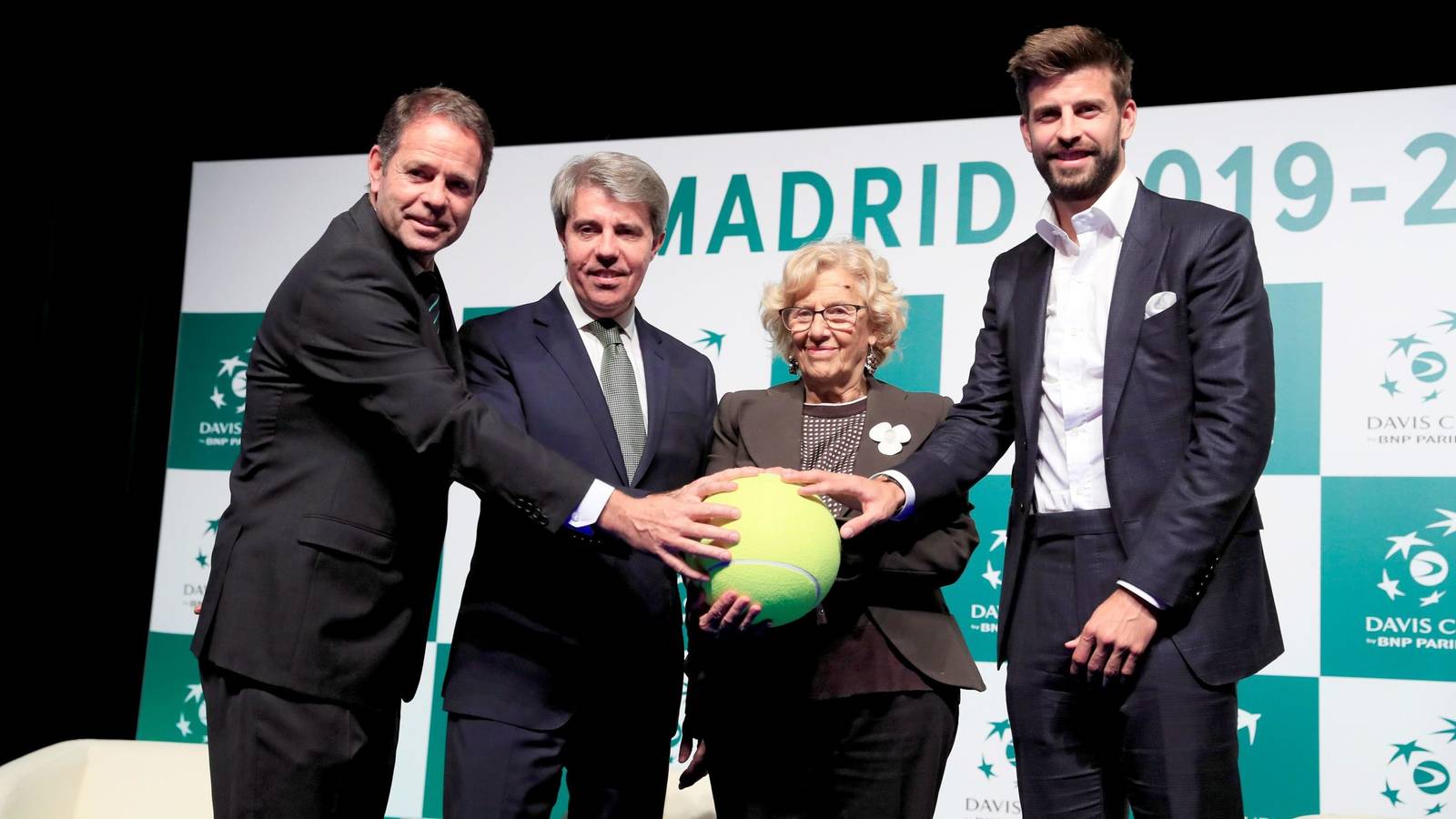The Davis Cup’s reform in 2019 is the talk of the town, but not everyone welcomes it.
The reason for this sudden change? “Sometimes things have to change, or they […] die,” states Gerard Piqué.
The Barcelona footballer and his company Kosmos Tennis have invested between $2 and $3 billion in revamping the oldest (119-year-old) international sports team competition.
It will look a lot like the World Cup now. It will consist of season-ending finals including 18 nations.
The Davis Cup starts in Madrid on Monday
Britain (the winner in 2015) was given a wildcard and its 5 players (Andy Murray, Dan Evans, Kyle Edmund, Jamie Murray, and Neal Skupski) will face the Netherlands and Kazakhstan. It looks like a favorable group for Britain.
Roger Federer won’t play after Switzerland failed to qualify.
Some ATP players have questioned whether a footballer should have a saying in the demolishing of a tennis tradition.
“We’re getting run by a Spanish football player. That’s like me […] making changes to the Champions League,” Australia captain Lleyton Hewitt protested earlier this year.
Andy Murray was more diplomatic, saying he was “open to change” and encouraging people to give the new format a chance.
OK, but why was the Davis Cup’s format changed?
Davis Cup is one of the world’s largest international team sports events. 132 nations took part last year.
During the years 1981-2018, 16 nations competed in the World Group in a single-elimination style, with the remaining countries divided into 3 regional zones.
It took place in February, April, September, and November at home and away venues. Each World Group tie was played over 3 days in a best-of-five tie of five-set matches.
However, the number of top players who have skipped matches to ease their schedules has greatly increased in recent years.
This is why the format had to change. There were different controversial proposals on the topic. The result is the tournament being shaped into a season-ending 18-team event after a 25-year plan funded by the Kosmos investment group represented by Piqué.
“Change was necessary,” said Tim Henman, former British number one.
“Top players were not playing. […] If you were going to get to the finals, it was going to take up eight weeks of your year.” “It can be a struggle physically and geographically.”
That’s why someone needed to take action. Now we’ll see whether the new Davis Cup format will be a great success or not.
